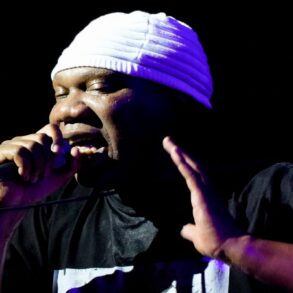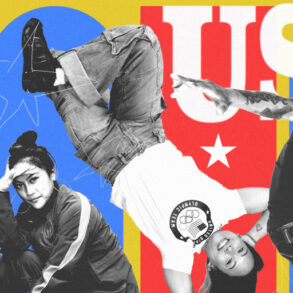Hip-hop singers represent a dynamic and diverse facet of the music industry, bringing a unique fusion of rhythm, poetry, and melody to the genre. Unlike traditional rappers, hip-hop singers seamlessly blend their lyrical prowess with melodic vocal delivery, creating a rich tapestry of sound that transcends conventional boundaries. These artists often navigate between the worlds of rap and R&B, incorporating elements of singing to add depth and emotional resonance to their narratives.
Pioneers like Drake have demonstrated the commercial viability of this melodic approach, proving that hip-hop can be as much about soulful crooning as it is about rhythmic flow. Travis Scott, with his autotuned atmospheres, has redefined the sonic landscape, while Kid Cudi’s introspective singing has influenced a generation of artists exploring the emotional spectrum within hip-hop.
Post Malone’s genre-blurring sound, blending hip-hop, R&B, and rock, showcases the evolving nature of hip-hop singers. Future, with his auto-tuned trap melodies, and Lil Uzi Vert, known for his infectious hooks, contribute to the genre’s constant innovation. Frank Ocean, not traditionally a rapper, has nevertheless left an indelible mark on hip-hop, using his soulful voice to explore themes of love, identity, and societal challenges.
In essence, hip-hop singers redefine the boundaries of the genre, proving that the marriage of rap and melodic vocals can produce a captivating and emotionally resonant musical experience that continues to captivate audiences worldwide.
1. Tupac Shakur
Tupac Shakur, often referred to by his stage name 2Pac, was an iconic American rapper, actor, and social activist. Born on June 16, 1971, in East Harlem, New York City, Tupac grew up in a politically active family and faced various challenges during his upbringing, including periods of homelessness.
Tupac rose to prominence in the early 1990s as one of the most influential figures in the hip-hop industry. His powerful and often politically charged lyrics addressed issues such as systemic racism, police brutality, poverty, and inequality. His music was characterized by a unique blend of gritty realism and emotional vulnerability.
Some of Tupac’s most notable albums include “2Pacalypse Now” (1991), “Strictly 4 My N.I.G.G.A.Z…” (1993), “Me Against the World” (1995), and “All Eyez on Me” (1996). The latter, released shortly before his death, is a double album that remains one of the best-selling rap albums of all time.
Apart from his musical career, Tupac also pursued acting, appearing in films like “Juice” (1992), “Poetic Justice” (1993), and “Above the Rim” (1994).
Tragically, Tupac Shakur was shot and killed in a drive-by shooting in Las Vegas on September 13, 1996, at the age of 25. His murder remains unsolved, contributing to the enduring mystique surrounding his life and legacy. Tupac’s impact on hip-hop culture, his advocacy for social justice, and his enduring influence on subsequent generations of artists solidify his status as one of the greatest and most significant figures in the history of hip-hop.
2. The Notorious B.I.G.
The Notorious B.I.G., born Christopher Wallace and also known as Biggie Smalls, was a larger-than-life figure in the world of hip-hop. Born on May 21, 1972, in Brooklyn, New York, Biggie rose to prominence during the 1990s as one of the most influential and talented rappers in the genre.
His debut album, “Ready to Die” (1994), showcased Biggie’s lyrical prowess, storytelling ability, and charismatic delivery. Tracks like “Juicy” and “Big Poppa” became instant classics, earning him commercial success and critical acclaim. The album delved into the struggles of his upbringing, juxtaposed with the newfound fame and wealth he experienced.
Biggie’s distinctive baritone voice, coupled with his intricate rhyme schemes and vivid narratives, set him apart in a competitive hip-hop landscape. His sophomore album, “Life After Death” (1997), was released shortly after his tragic and untimely death on March 9, 1997. The album, featuring hits like “Hypnotize” and “Mo Money Mo Problems,” showcased Biggie’s versatility, seamlessly transitioning between street narratives and celebratory anthems.
Biggie’s impact on hip-hop extends beyond his music; he played a crucial role in East Coast-West Coast hip-hop rivalries of the 1990s. Despite the controversies, his talent and storytelling abilities earned him respect across the industry.
His legacy endures as one of the greatest and most influential figures in hip-hop history. The Notorious B.I.G.’s impact on the genre is immortalized through his timeless music, posthumous releases, and the enduring influence he has had on subsequent generations of rappers.
3. Jay-Z
Jay-Z, born Shawn Corey Carter on December 4, 1969, is a towering figure in the world of hip-hop and one of the most successful and influential musicians in the history of the genre. Raised in Brooklyn, New York, Jay-Z rose from a life of poverty and adversity to become a global icon.
His debut album, “Reasonable Doubt” (1996), introduced the world to Jay-Z’s intricate lyricism, streetwise narratives, and a smooth delivery that set him apart. The album laid the foundation for a prolific career that would span decades. Over the years, Jay-Z has released numerous critically acclaimed and commercially successful albums, showcasing his evolution as an artist.
Beyond his music, Jay-Z is a shrewd businessman and entrepreneur. Co-founder of Roc-A-Fella Records and the founder of Roc Nation, he has played a pivotal role in shaping the careers of several artists. His ventures also extend to fashion, streaming services, and sports management.
Jay-Z’s impact on the hip-hop industry is immeasurable. He holds the record for the most number-one albums by a solo artist on the Billboard 200 and has won multiple Grammy Awards. Songs like “99 Problems,” “Empire State of Mind,” and “Big Pimpin’” have become cultural touchstones.
Beyond his artistic and business success, Jay-Z is known for addressing social and political issues in his music, advocating for criminal justice reform, and using his platform to promote positive change. His journey from a Brooklyn street corner to becoming a billionaire and cultural icon epitomizes the American Dream, making Jay-Z a figure whose influence transcends the music industry.
4. Eminem
Eminem, born Marshall Bruce Mathers III on October 17, 1972, is a highly acclaimed American rapper, songwriter, record producer, and actor. Widely regarded as one of the greatest and most influential artists in the history of hip-hop, Eminem gained global recognition for his intricate wordplay, rapid delivery, and candid storytelling.
Growing up in Detroit, Michigan, Eminem faced a challenging childhood marked by poverty and personal struggles. He gained attention in the late 1990s with his alter ego Slim Shady and his 1999 major-label debut, “The Slim Shady LP.” The album, featuring hits like “My Name Is” and “Guilty Conscience,” won Eminem his first Grammy Award for Best Rap Album.
Eminem’s subsequent albums, including “The Marshall Mathers LP” (2000) and “The Eminem Show” (2002), solidified his status as a global superstar. The Marshall Mathers LP won the Grammy for Album of the Year, making Eminem the first rapper to receive the honor. His alter ego, Slim Shady, allowed him to explore darker themes and alter his style, creating a complex and provocative persona.
Throughout his career, Eminem has faced controversies due to the explicit content of his lyrics, but he is also recognized for addressing personal struggles, addiction, and mental health in his music. His altercations with other artists, including his feuds with other rappers, have been widely publicized.
After a hiatus in the mid-2000s, Eminem made a comeback with albums like “Recovery” (2010) and “The Marshall Mathers LP 2” (2013), showcasing his continued relevance and skill in the evolving landscape of hip-hop. His alter ego Slim Shady remains a central element in his music, allowing Eminem to express different facets of his personality.
Eminem’s impact on the genre, his technical prowess, and his ability to connect with listeners through his storytelling have contributed to his enduring legacy as one of the greatest and most influential figures in hip-hop.
5. Snoop Dogg
Snoop Dogg, born Calvin Cordozar Broadus Jr. on October 20, 1971, is an iconic American rapper, singer, songwriter, record producer, and actor. Emerging from the West Coast hip-hop scene, Snoop Dogg rose to fame in the early 1990s and has since become one of the most enduring and recognizable figures in the music industry.
Snoop Dogg’s debut album, “Doggystyle,” released in 1993, was a critical and commercial success. The album, produced by Dr. Dre, featured hits like “Gin and Juice” and “What’s My Name?” and solidified Snoop’s reputation for his smooth flow, laid-back delivery, and unique vocal style. His distinctive voice and charismatic persona contributed to his widespread appeal.
Throughout his career, Snoop Dogg has consistently released albums that showcase his versatility and adaptability within the hip-hop genre. His discography includes successful projects like “Tha Doggfather” (1996), “Tha Blue Carpet Treatment” (2006), and “Doggumentary” (2011). He has collaborated with a wide range of artists across various genres, further expanding his influence.
Beyond music, Snoop Dogg has ventured into acting, entrepreneurship, and philanthropy. He has appeared in several films and television shows, often playing roles that capitalize on his charismatic and laid-back personality. Additionally, he has been involved in various business ventures, including his own line of cannabis products.
Snoop Dogg’s persona is characterized by his love for West Coast culture, including lowrider cars, gangsta rap aesthetics, and a distinctive fashion sense. His enduring popularity and status as a cultural icon have been reinforced by his ability to adapt to changing musical landscapes while staying true to his roots.
Known for his laid-back demeanor and trademark use of slang, Snoop Dogg has become a beloved and respected figure in hip-hop, leaving an indelible mark on the genre and influencing subsequent generations of artists. His contributions to rap music and popular culture have earned him a lasting legacy in the annals of hip-hop history.
6. Nas
Nas, born Nasir bin Olu Dara Jones on September 14, 1973, is a highly regarded and influential rapper from Queens, New York. Widely considered one of the greatest lyricists in hip-hop history, Nas made a profound impact on the genre with his thought-provoking lyrics, intricate rhyme schemes, and vivid storytelling.
His debut album, “Illmatic” (1994), is often hailed as one of the greatest hip-hop albums of all time. With tracks like “N.Y. State of Mind” and “The World Is Yours,” Nas showcased his lyrical prowess and provided a raw and authentic portrayal of life in the Queensbridge housing projects.
Nas’s career has been marked by a series of critically acclaimed albums, each showcasing his ability to adapt to changing musical landscapes while maintaining his core authenticity. Albums like “It Was Written” (1996), “Stillmatic” (2001), and “God’s Son” (2002) further solidified his status as a hip-hop legend.
Beyond his solo career, Nas has collaborated with other influential artists and participated in notable hip-hop projects. His collaboration with Damian Marley, “Distant Relatives” (2010), explored themes of African identity and social justice.
Nas’s impact on hip-hop extends beyond his music; he has been a significant cultural and social commentator. His ability to articulate complex ideas and address societal issues in his lyrics has earned him respect not only as a skilled rapper but also as an insightful and influential voice.
Nas’s contributions to the genre have left an enduring legacy, and his influence can be heard in the work of numerous contemporary artists who recognize his role in shaping the evolution of hip-hop.
7. Kendrick Lamar
Kendrick Lamar, born on June 17, 1987, in Compton, California, is an acclaimed American rapper, songwriter, and record producer. Recognized for his lyrical prowess, social commentary, and intricate storytelling, Kendrick Lamar has emerged as one of the most influential and respected artists in contemporary hip-hop.
Lamar first gained widespread recognition with the release of his mixtapes, particularly “Overly Dedicated” (2010) and “Section.80” (2011). His major-label debut, “good kid, m.A.A.d city” (2012), propelled him to mainstream success. The album, featuring tracks like “Swimming Pools (Drank)” and “Bitch, Don’t Kill My Vibe,” received critical acclaim for its narrative concept and Lamar’s complex lyricism.
Following the success of “good kid, m.A.A.d city,” Lamar continued to push artistic boundaries with his subsequent albums. “To Pimp a Butterfly” (2015) is often regarded as a masterpiece, incorporating jazz, funk, and spoken word elements. The album delves into themes of racial identity, systemic oppression, and self-discovery. It includes tracks like “Alright” and “King Kunta” and earned Lamar multiple Grammy Awards.
His next album, “DAMN.” (2017), showcased a more straightforward approach, yet maintained his lyrical depth. The album includes hits like “HUMBLE.” and “DNA.” and earned Lamar the Pulitzer Prize for Music, making him the first non-classical or jazz artist to receive the prestigious award.
Kendrick Lamar’s impact extends beyond his music; he is recognized for addressing social issues and promoting positive change through his art. He has been an advocate for social justice, particularly in addressing racial inequality.
Known for his thought-provoking lyrics, versatile flow, and conceptual albums, Kendrick Lamar’s influence on hip-hop is profound. His ability to seamlessly blend storytelling with complex rhyme schemes has solidified his status as one of the genre’s most innovative and respected artists.
8. Ice Cube
Ice Cube, born O’Shea Jackson on June 15, 1969, is an influential American rapper, actor, producer, and filmmaker. Emerging from the West Coast hip-hop scene, Ice Cube first gained prominence as a member of the pioneering rap group N.W.A. (Niggaz Wit Attitudes) in the late 1980s. His bold and politically charged lyrics, along with his distinctive delivery, contributed to N.W.A.’s groundbreaking impact on the genre.
Ice Cube left N.W.A. in 1989 due to financial disputes and creative differences. His debut solo album, “AmeriKKKa’s Most Wanted” (1990), marked a powerful entry into his solo career. The album, produced by Public Enemy’s Chuck D, featured tracks like “It Was a Good Day” and “Straight Outta Compton,” showcasing Ice Cube’s lyrical prowess and social commentary.
His subsequent albums, including “Death Certificate” (1991) and “The Predator” (1992), further solidified his status as a solo artist. Ice Cube’s music often addresses issues such as racial inequality, police brutality, and socio-political challenges faced by the African American community.
In addition to his successful music career, Ice Cube has made a significant impact in the entertainment industry as an actor and producer. He starred in and co-wrote the screenplay for the 1995 film “Friday,” a comedy classic. He continued to build his acting career with roles in movies such as “Boyz n the Hood” (1991), “Higher Learning” (1995), and “Barbershop” (2002).
Ice Cube’s influence extends to the film industry, where he has become a successful producer, with credits including the “Friday” film franchise, the “Barbershop” series, and the hit comedy “Ride Along” (2014).
Throughout his career, Ice Cube has remained a significant figure in hip-hop, praised for his authenticity, social commentary, and ability to navigate between the realms of music and film. His contributions to the genre and popular culture have solidified his legacy as one of the most influential figures in hip-hop history.
9. Lil Wayne
Lil Wayne, born Dwayne Michael Carter Jr. on September 27, 1982, is a highly influential rapper, songwriter, and record executive hailing from New Orleans, Louisiana. Often referred to as “Weezy” or “Tunechi,” Lil Wayne has had a significant impact on the rap industry, known for his distinctive voice, prolific output, and innovative approach to the genre.
Lil Wayne gained early recognition as a member of the hip-hop group Hot Boys, which also included artists like Juvenile, Turk, and B.G. His solo career took off with the release of “Tha Block Is Hot” (1999), his debut studio album. However, it was his mixtapes and the “Tha Carter” series that truly catapulted him to stardom. “Tha Carter III” (2008) became a massive commercial success, winning multiple Grammy Awards and featuring hits like “Lollipop” and “A Milli.”
Known for his rapid-fire delivery, clever wordplay, and willingness to experiment with different styles, Lil Wayne has consistently pushed the boundaries of rap music. His mixtape series, particularly “Dedication” and “No Ceilings,” showcased his freestyle abilities and solidified his reputation as a formidable lyricist.
Lil Wayne’s influence extends beyond his music; he founded the Young Money Entertainment record label, which has nurtured the careers of successful artists like Drake and Nicki Minaj. Despite legal battles and setbacks, Lil Wayne’s impact on the rap industry remains significant, and he continues to be a respected and influential figure in hip-hop culture.
10. Drake
Drake, born Aubrey Drake Graham on October 24, 1986, is a Canadian rapper, singer, songwriter, actor, and entrepreneur. Emerging as a prominent figure in the hip-hop and R&B landscape, Drake’s multifaceted talent has made him one of the most successful and influential artists of his generation.
Drake gained widespread recognition with his mixtapes, most notably “So Far Gone” (2009), which included breakout hits like “Best I Ever Had” and “Successful.” His debut studio album, “Thank Me Later” (2010), marked the beginning of his commercial success, and subsequent albums like “Take Care” (2011) and “Nothing Was the Same” (2013) solidified his status as a chart-topping artist.
Known for his introspective lyrics, emotional depth, and versatile style that seamlessly combines rap and R&B elements, Drake has consistently produced chart-topping hits. His ability to address personal experiences, relationships, and the challenges of fame resonates with a broad audience.
Drake’s dominance in the music industry is reflected in numerous accolades, including multiple Grammy Awards. His 2015 mixtape, “If You’re Reading This It’s Too Late,” and his 2018 album, “Scorpion,” further cemented his position as a commercial powerhouse.
Beyond music, Drake has ventured into acting, with notable roles in television and film. He has also made a mark in the business world, co-founding the OVO Sound record label and associating himself with global brands.
Drake’s influence extends beyond his musical achievements; he has played a pivotal role in shaping the sound of contemporary hip-hop and R&B. His impact on popular culture, social media, and the music industry at large underscores his significance as a trendsetter and cultural icon.
11. Kanye West
Kanye West, born on June 8, 1977, in Atlanta, Georgia, is a highly influential American rapper, producer, fashion designer, and entrepreneur. Renowned for his innovative approach to music, outspoken personality, and impact on the fashion industry, Kanye West has left an indelible mark on contemporary hip-hop and popular culture.
Kanye West’s career began as a producer, creating beats for artists like Jay-Z. He gained recognition for his work on Jay-Z’s critically acclaimed album “The Blueprint” (2001). In 2004, West released his debut album, “The College Dropout,” which garnered widespread acclaim for its unique production, introspective lyrics, and genre-defying sound. The album included hits like “Through the Wire” and “Jesus Walks.”
Throughout his career, Kanye West continued to push artistic boundaries with albums such as “Late Registration” (2005), “Graduation” (2007), and “My Beautiful Dark Twisted Fantasy” (2010). These albums showcased his versatility, blending elements of hip-hop, soul, and electronic music. “My Beautiful Dark Twisted Fantasy” is particularly lauded as a groundbreaking work in the hip-hop genre.
West’s willingness to explore diverse musical styles, combined with his unfiltered and outspoken persona, has kept him at the forefront of the music industry. His influence extends to fashion, where he launched the YEEZY brand and collaborated with major fashion houses. He is also known for his forays into other creative fields, including film and visual art.
However, Kanye West’s public persona has been marked by controversy, including headline-grabbing incidents and polarizing statements. Despite this, his impact on the music industry, fashion, and popular culture cannot be denied.
Kanye West’s career is a testament to his ability to challenge norms and reshape the landscape of hip-hop. Whether through his groundbreaking music or his influence in fashion and beyond, Kanye West continues to be a central figure in shaping the cultural conversation and pushing creative boundaries.
12. Rakim
Rakim, born William Michael Griffin Jr. on January 28, 1968, is a legendary rapper and lyricist widely regarded as one of the greatest and most influential figures in the history of hip-hop. Hailing from Wyandanch, New York, Rakim rose to prominence in the late 1980s as one half of the duo Eric B. & Rakim, alongside DJ Eric B.
Rakim’s approach to rhyming revolutionized the art of lyricism in hip-hop. His smooth, intricate flow, complex rhyme schemes, and thoughtful, introspective lyrics set him apart from his contemporaries. The duo’s debut album, “Paid in Full” (1987), is a landmark in hip-hop history and features tracks like the title track “Paid in Full” and “I Ain’t No Joke.” Rakim’s innovative lyrical style and Eric B.’s production marked a paradigm shift in the genre.
Their follow-up album, “Follow the Leader” (1988), and subsequent releases continued to showcase Rakim’s lyrical prowess. His solo debut, “The 18th Letter” (1997), and the compilation “The Master” (1999) further solidified his legacy.
Rakim’s impact on the evolution of hip-hop cannot be overstated. He introduced a more intricate and sophisticated form of lyricism, influencing countless rappers who followed. His work is often cited as a major factor in the transition from the simpler rhyme patterns of early hip-hop to the complex and intricate styles that became prevalent in the genre.
Rakim’s influence extends to all corners of hip-hop, with artists from various generations acknowledging his contribution to the art form. His legacy is not just about his technical skill but also about the profound impact he had on the culture and the elevation of lyricism in hip-hop.
13. Andre 3000
Andre 3000, whose real name is André Lauren Benjamin, is an American rapper, singer, songwriter, actor, and producer. Born on May 27, 1975, in Atlanta, Georgia, Andre 3000 is best known as one half of the hip-hop duo OutKast, alongside Big Boi (Antwan Patton).
OutKast gained widespread acclaim and success in the 1990s for their innovative approach to hip-hop, blending various genres such as funk, jazz, and Southern rap. Andre 3000’s distinct style, characterized by his clever wordplay, eclectic fashion sense, and unique delivery, contributed significantly to OutKast’s appeal.
Some of OutKast’s most iconic albums include “ATLiens” (1996), “Aquemini” (1998), and “Stankonia” (2000). The duo achieved mainstream success with hit singles like “Hey Ya!” and “Ms. Jackson” from their 2003 double album “Speakerboxxx/The Love Below.” This album showcased the duo’s individual creativity, with Andre 3000’s “The Love Below” featuring more singing and a departure from traditional rap.
Andre 3000’s influence extends beyond music, as he has also made a name for himself in the fashion world and as an actor. He has been involved in various film and television projects, earning critical acclaim for his performances.
One of the defining features of Andre 3000’s artistry is his willingness to experiment with different styles and challenge the boundaries of hip-hop. He is often praised for his versatility, seamlessly moving between rapping and singing, and his ability to address a wide range of topics in his lyrics, from personal experiences to social issues.
While Andre 3000 has been selective in releasing solo material, his impact on hip-hop and popular culture remains significant. He is often cited as one of the greatest lyricists and innovators in the genre, and his contributions with OutKast have left an enduring mark on the landscape of hip-hop.
14. J. Cole
J. Cole, born Jermaine Lamarr Cole on January 28, 1985, is an American rapper, singer, and record producer. Emerging as a significant figure in the hip-hop scene, J. Cole has built a reputation for his insightful lyrics, storytelling abilities, and socially conscious themes.
Raised in Fayetteville, North Carolina, J. Cole gained attention with his mixtapes, particularly “The Come Up” (2007) and “Friday Night Lights” (2010). His debut studio album, “Cole World: The Sideline Story” (2011), marked his entry into the mainstream and included hits like “Work Out” and “Can’t Get Enough.”
J. Cole’s subsequent albums, including “Born Sinner” (2013), “2014 Forest Hills Drive” (2014), and “4 Your Eyez Only” (2016), showcased his lyrical depth and willingness to tackle complex subjects, such as poverty, racism, and the challenges of fame. “2014 Forest Hills Drive” is particularly notable for being certified double platinum without any featured guest artists, a rare feat in contemporary hip-hop.
Known for his introspective and relatable content, J. Cole’s music often explores his personal experiences and societal issues. He has been praised for his authenticity, addressing topics that resonate with a broad audience.
In addition to his solo work, J. Cole is the founder of the Dreamville record label, which has fostered the careers of several talented artists. His collaborative projects, such as “Revenge of the Dreamers III” (2019), showcase his commitment to supporting and nurturing emerging talent in the industry.
J. Cole’s impact on hip-hop extends beyond his music; he is respected for his dedication to storytelling, social commentary, and authenticity in a genre that continually evolves. His influence is evident not only in his commercial success but also in the way he has inspired a new generation of artists to prioritize substance and meaning in their work.
15. Dr. Dre
Dr. Dre, born Andre Romelle Young on February 18, 1965, is an American rapper, record producer, audio engineer, and entrepreneur. He is a pivotal figure in the history of hip-hop and has played a crucial role in shaping the genre’s sound and culture.
Dr. Dre first gained prominence as a founding member of the pioneering rap group N.W.A. (Niggaz Wit Attitudes) in the late 1980s. As a producer and rapper, he contributed significantly to the group’s groundbreaking album “Straight Outta Compton” (1988), which addressed social issues, police brutality, and life in Compton, California. Dr. Dre’s production on the album, characterized by heavy beats and innovative sampling, marked a turning point in the evolution of hip-hop production.
Following his departure from N.W.A., Dr. Dre embarked on a solo career and released his debut album, “The Chronic,” in 1992. The album introduced the world to his signature G-funk sound, featuring deep basslines, synthesizers, and catchy melodies. “The Chronic” included hit singles like “Nuthin’ but a ‘G’ Thang” and introduced the rap world to Snoop Doggy Dogg (now Snoop Dogg).
Dr. Dre’s influence continued into the mid-1990s when he discovered and mentored artists such as Eminem and produced the groundbreaking album “Doggystyle” for Snoop Doggy Dogg. In 1996, he co-founded Aftermath Entertainment, further solidifying his role as a music industry mogul.
One of Dr. Dre’s most significant contributions to hip-hop is his role in the development of Beats by Dre, a line of headphones and audio products that became immensely popular. Apple Inc. acquired Beats Electronics in 2014 for a landmark deal, adding to Dr. Dre’s already substantial impact on the business side of the music industry.
While Dr. Dre’s solo discography is limited compared to his production and business ventures, his impact on the sound of hip-hop, the success of numerous artists, and his influence as a producer and entrepreneur have made him an enduring and legendary figure in the genre.
This post was originally published on this site be sure to check out more of their content.










